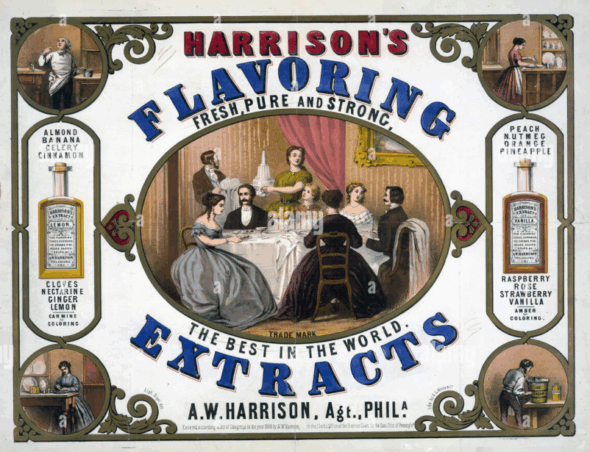This cartoon is by me and Becky Hawkins.
Dylan Scott wrote an article on Vox entitled “The One Big Unanswered Question About Ozempic.” Ozempic seems to take away urges, and not only hunger related urges. And no one seems to know what that means yet.
“What are the very long-term effects of these drugs? The literature will say, ‘Well, there isn’t really bad long-term effects because some people have been taking it for diabetes for 10 years, and they don’t have bad effects,’” Kent Berridge, a professor of psychology and neuroscience at the University of Michigan, told me. “And I think that’s a fair argument. But then 10 years is not 20 years or 30 years.”
Maybe twenty years from now, we’ll all agree that Ozempic is great. I’m certainly not advising anyone not to take it; that’s a decision individuals have to make for themselves. But miracle weight loss drugs don’t have the greatest track record.
In the same article, Scott brought up a study which – I’m pretty sure unintentionally – underscores the need for caution.
Research has consistently found that weight loss tends to be more sustainable when it includes behavioral changes in addition to pharmaceutical interventions.
The link goes to a 2005 study in the highly respected New England Journal of Medicine, “Randomized Trial of Lifestyle Modification and Pharmacotherapy for Obesity.”
(Contrary to Dylan Scott’s claim, the study isn’t about “sustainable” weight loss. In fact, it only followed subjects for a year. It’s a study of how effective different weight loss approaches are, not how well they’re sustained.)
They found that pharmaceutical plus “lifestyle modification” (exercise, talking to nutritionists, etc.) led to more weight loss than other approaches – 26 pounds loss, versus 15 pounds for those who only made lifestyle modifications. (Although keep in mind, it’s likely most of the subjects regained the weight in the long run.) The study concluded that “the results underscore the importance of prescribing weight-loss medications” in combination with lifestyle change.
26 pounds – that’s amazing! And this was in 2005! So why isn’t everyone today losing weight taking that miracle pill?
Because the miracle pill in question was sibutramine, also known as Meridia, and it was banned in 2010 because it was causing patients to have heart attacks and strokes.
In 2005, doctors were recommending sibutramine for weight loss. In 2010, after doing no one knows how much damage, sibutramine was banned. And now it’s forgotten. We’ve gone through this cycle a lot.
Horrifyingly, all the treatments mentioned in this cartoon were real historic weight-loss treatments. And honestly, we could have done twice as many panels. Here are some links in case you’d like to read more:
The Seesawing History of Fad Diets
History of Slimming Diets up to the Late 1950s
Fad Diets and Weight Loss: From the 1800s to the 1930s
Deadly Diet Culture Throughout History
Becky writes:
I love drawing a “thingie through the ages” comic. They take a lot more time to research than a comic set in one period, though. I had about 30 tabs open while I was drawing this!
I know that we’ll always see fashion through a present-day lens. For example, someone might see flannel and wide-legged jeans as “90s fashion” instead of “clothes that indicate a high schooler is into grunge music, smoking pot, or is just on stage crew,” which was what that meant in my high school in the 90s.
That said, I have a specific pet peeve: when a period film is thoroughly researched and lovingly presented, everything is authentic and gritty except that the leading lady’s hair and makeup looks Good ™. Dare to make historical characters look a little funny!
I’m really pleased with the graphics I drew around the captions. I got the idea for them when I saw this old ad and thought that the leafy pattern could nicely fill the space to the right of “1850.”
I realized that every panel was in danger of having dead space at the top, and I thought that different colors, textures, and shapes would be a great way to indicate different eras. The 1912 and 1928 graphics also come from advertisements; the 1970s one just lives in my brain. Barry found this design blog to help with the 1996 graphic. Just seeing those colors and textures brought back vivid memories of notebooks, magazines, and TV commercials!
TRANSCRIPT OF CARTOON
This cartoon has six panels. Each panel has a large caption at top, indicating the date.
PANEL 1 – 1850
Three people in 1850s clothing, two women and a man with a fantastic mustache, sit at a table. A tray in front of them is piled high with wafers.
MAN: Dr Simm’s Arsenic Wafers will safely make you slender and beautiful! Trust me, I’m a doctor!
PANEL 2 – 1912
A doctor in a white lab coat talks to us. He stands with his arm around a gigantic tapeworm, which is about as tall as he is.
DOCTOR: You just swallow tapeworm eggs. These sweet creatures are nature’s path to slimness!
TAPEWORM: What could go wrong?
PANEL 3 – 1928
A man in a tux lights a cigarette for a glamourous woman in a flapper-style dress.
MAN: Light a Lucky Strike and you’ll never miss sweets that make you fat!
PANEL 4 – 1975
A doctor in a white lab coat grins at us as he holds up a pill bottle. Behind him, a beautiful woman sleeps on a bed.
DOCTOR: Sedatives! Sleep twenty hours a day and you won’t be eating! Nothing could be healthier!
PANEL 5 – 1996
A man talks to us while holding up a Time Magazine cover. The cover shows the body of a slim woman in a bathing suit, with the caption “Hot New Diet Pill.”
MAN: It’s called Fen-Phen! What a fun name, right? You’ll lose weight and it definitely probably maybe won’t cause heart attacks!
PANEL 6- TODAY
A doctor holds up a syringe, as he talks to us with a grin.
DOCTOR: Just inject once weekly for the rest of your life and you’ll stop wanting to eat. Totally safe! Trust us, we’re doctors!
CHICKEN FAT WATCH
“Chicken fat” is obsolete cartoonists’ terminology for unimportant but fun details slipped into the art.
PANEL 1: One of the women has died.
PANEL 2: A box on a little table is labeled “WYRM” and has an illustration of a tapeworm framed by laurel branches.
PANEL 3: There are six ashtrays, overflowing with cigarette butts, on a table in the foreground. The entire panel is laid out to resemble a 1920s magazine ad.
PANEL 4: The sleeping woman is dressed like a flower child, and her hair is drawn with spirals, which illustrators did a lot in the 1970s. Outside a window, we can see Merryweather and Maleficent from Sleeping Beauty enjoying eating cake; Maleficent is feeding a bit to her pet raven Diablo.
PANEL 6: The doctor’s necktie has a pattern of cartoon tapeworms.








You know you could have easily made the last panel about vaccines and it wouldn’t have made much difference.
Perhaps I’m a sucker, but I’ve requested and taken both the COVID vaccines and Ozempic, with doctor approval.
I take the point, generally, that people have been suckered and harmed by weight loss schemes in the past, and people driven by a desire to be more attractive tend to be more credulous. Weight loss is the low hanging fruit, but there are obvious other examples – When considering examples, I immediately thought of hair loss and recent studies showing a connection between finasteride and cognitive issues.
But frankly, I think people are sleeping on this.
We know the basic science of how this works, and what it does. This isn’t untested. The protein is naturally produced by people. Some people produce more of it than others, and increasing the amount of that protein in someone’s system to levels naturally produced in other people hits me as being medically on par with taking insulin. The idea that the protein mixed with a transmission solution could have severe adverse reactions is probably more anti-science than a lot of the positions of anti-vaxxers.
Meanwhile…. It does help regulate blood sugar, stave off craving, reduce blood pressure, and produces a whole host of other, measurable, objective benefits. I have no problem with people making their own health decisions, and by all means: read. But just like I’d urge people to get vaccinated, I’d urge people to talk to their doctor about taking a GLP-1. Cardiovascular disease is, by far, the most deadly health complication in America. The number of people who would live longer, healthier lives if everyone were taking a prescribed dose of GLP-1, I think, is profound.
The problem, even in Canada, is pricing and insurance. I pay about $250/month out of pocket because I’m taking it off-label, But were I so inclined and if I trusted myself to keep the process sterile, it’s possible to import the protein from China and mix the solution yourself for about a third of that. I don’t recommend that, it’s too easy to contaminate something, but it highlights that the markup that people are paying is, as usual, disgusting. I can’t wait for the generic, on-label options.
I’m not going to take this stuff unless a doctor tells me “Take this or die” or long-term studies are completed. Which has pretty much been my approach towards the Covid vaccine. I took the first one. I took the first booster. And since then I’ve said “No thanks.”
“But were I so inclined and if I trusted myself to keep the process sterile, it’s possible to import the protein from China, ….”
Keeping the process sterile isn’t nearly as hard as you might think. Buy a pressure cooker; 15 lbs for 15 minutes will sterilize most equipment, skin can be sterilized with ethanol followed by povidone-iodine; after that it’s a matter of technique. But trusting any such product sourced from China without an independent, domestic means of analyzing it? Good God in Heaven, no. Heck, I remember when dogs died all over America of poisoning because a Chinese dog food manufacturer put ground up melamine in the food to spoof American quality control protein assays (which only actually measured the amount of amines in the food, not the amount of amino acids) and enable them to make the dog food more cheaply.
The June 1856 ad:
It has always struck me when I look at that kind of clothing to say “Wasn’t that pretty damn HOT?”
The last panel shifts the focus of the cartoon from being against inadequately tested fad weight loss products (where I’m with you) to generally anti-doctor, with diet medicine serving as an example (where you lose me). Weight loss may be unique in the degree to which the average doctor becomes anti-science in prescribing treatments.*
What vaccine needs to be taken weekly? Most vaccine are one or two and done. Even flu and covid vaccines are annual. That’s why the “pharmaceutical companies just want to profit” conspiracy theories fall flat when it comes to vaccines. The real money is in chronic conditions requiring daily medication for life – pain killers, diabetes medicine and, yes, weight loss drugs.
Another difference with vaccines is that the previous five panels would be world-changing successes – small pox, polio, measles, mumps, rubella, whooping cough, flu, and, yes, covid-19. There have been problems with batches of vaccines, but were any pulled from the market, never to return again, like these weight loss treatments? I can’t think of one.
*Withholding treatment is another matter.
Kate – the first vaccine developed for RSV, in the 60s and 70s, was very dangerous. it was many many decades before work started again on making new vaccines for this virus. there are now some for older adults but none yet for children (the target population of the first vaccine). https://en.m.wikipedia.org/wiki/Respiratory_syncytial_virus_vaccine, in the History subsection.
not sharing to negate any of your points whatsoever! just because it’s interesting, and I think it can be useful to have a mental example of “wait, what would happen if a vaccine ended up being really bad for people?” it wasn’t covered up, it was indeed ‘removed from the market, never to return again’.
@Kate: I didn’t mean that the last panel’s literal words could have been referring to vaccines. I meant that if you substituted the last panel with a different panel about how vaccines were bad, it wouldn’t make much difference to the overall thrust of the cartoon which, like you, I believe is broadly anti-medicine rather than specifically anti-diet, and that makes me uncomfortable.
Generally this rhetorical technique that Gary is using, outlining the errors of historical medicine to discredit modern medicine, is used not only for the cause he is advocating but also people who are anti-vaccine, anti-medicine or even anti-science.
I think the RSV vaccine was only in trials, not in general distribution. From the article Wikipedia cited:
For some reason, people have been resistant to vaccines ever since their inception. The continued scepticism about vaccines despite the clear benefits over time is puzzling to me.
Other areas of medicine don’t seem to get as much scrutiny. Weight loss treatments are at the opposite end of the spectrum. System after system, drug after drug, has failed – some even proven dangerous – over and over again, yet people continue to buy into the hype. I’m baffled.
I think one of the reasons is that vaccines seem “too good to be true,” and so people may doubt that they really do work as well as, and in the way that, they are described as working
and on another level, people have the feeling that if vaccines are indeed powerful enough to make you immune to a disease after only one or two or three injectionss, then something about themselves as people is being alchemically altered in the process. a tiny injection is enough to transform a person from someone vulnerable to a disease to someone invulnerable to it–what other attributes and aspects of themselves are being changed at the same time? a painkiller changes the pain, but a vaccine changes ~you~
again, I work in health care and am very pro-vaccine and have all my shots. but I think for people who don’t have as strong an understanding of how the immune system works in general, it may seem unnatural
AND then you add in the cost motivation factors you mentioned in your previous comment. in the US, every little health care thing is SO expensive, and yet here is something that’s one-and-done? what are they hiding from us that makes this just as advantageous ~to them~ as literally paying $100 just to talk to a doctor at urgent care or $3000 just to go to the emergency department?
also, relative to the weight-loss drugs, the vaccines solve a hypothetical future problem (which is in fact a very active and ongoing concern on a population health level), while weight loss drugs “solve” an active and present problem, of being anything fatter than slim in a very fatphobic society
None need to be taken weekly, flu shots can be taken quarterly because the cocktail is seasonal, but I take your point. I didn’t think the frequency was the point though, I focused more on “Trust us, we’re doctors”, both because it’s the name of the comic, and because the frequency isn’t important: If not the vaccine, then pick something taken daily – There are literally millions of people on regular drugs for chronic conditions. How many people are on daily blood pressure regimens? Might there be a profit motive? Sure. But they also might be keeping you healthier. It really is a matter of trust. Do you trust Doctors? Do you trust science? And that’s the tie in to the vaccine. You either trust them, or you don’t.
I don’t think your average family MD is a moustache twirling victim trying to induce you to eat arsenic crackers because they get a kickback. Your mileage may vary, I suppose, but I think that generally, MDs are people trying to help other people with the best information they have available, and in 2025, that’s pretty good information.
Tons of batching issues, and some of those are recent… In 2018, A vial of MMR vaccine in Samoa was suspended in an anesthetic instead of a diluent and some kids died. The nurse who compounded it was prosecuted for manslaughter.
But a whole vaccine pulled? Relatively few.
The Cutter Incident is probably the worst example: One of the first Polio vaccines, the Polio virus wasn’t properly deactivated and they were straight up injecting people with functionally live Polio. 120,000 doses administered, which resulted in 40,000 cases. 56 kids were paralyzed, five died.
Then there’s a classification of failures that are based on the host animals used to create vaccines. Between 1955 and 63 an estimated 15-30% of Polio vaccines were contaminated with Simian Virus, because the monkeys used to grow the vaccine were infected. There was some Porcine Circovirus found in Rotovirus vaccines in 2010.
I think a lot of these are covered up, there’s a line to draw between informing people and scaring them, and we don’t hear so much about them because of the fallout of vaccine hesitance. Remember that bad batch of MMR from Samoa? Two kids died. After those kids died, vaccine uptake plummeted, and two years later there was a measles epidemic that sickened 6000 people and killed 100, mostly kids.
Worse are the completely unjustified panics; The vaccine for Lyme disease was pulled from the market in 2002 because the manufacturer was getting calls about side effects, but a subsequent study showed that the side effects were occurring at about the normal rate they would in the general population. Right now, because of those concerns, there is no commercially available Lyme vaccine.
I think it’s a mix between the needle and the mandates, but mostly the needle. I’d be willing to bet huge amounts of money that if we were able to create an oral treatment, uptake would improve.
Are you really? I didn’t make this point originally because I think it’s kind of blunt, but there’s a lot of crossover between weight loss and gender affirmation. If the first kind of gender affirming treatment isn’t successful, do you expect the patient to stop trying?
I know a trans woman taking Spironolactone, I’m also taking that as a blood pressure medication. The doctor was worried about my kidneys with what I’m on, and I get quarterly blood and urine testing. She’s taking 25 times my dose, because the doctor is hoping to induce a side effect which will cause natural breast growth. I can’t think of an argument against Ozyempic that wouldn’t also apply to her taking Spiro.
Every single panel, without exception, is focused on weight loss.
How could it have been more focused on weight loss? What would I have need to do to make that clear to you, if you aren’t able to understand that from every single panel explicitly being about weight loss treatments?
I’ll let Kate and Watcher speak for themselves…. But I’ll take the bait.
I’d call this anti-medicine because the natural conclusion is obvious. You realize that the title of your comic is “Trust Us, We’re Doctors”, right? And that the individual in the last panel is an MD, prescribing medicine, saying that the treatment is safe, and we can trust that because he’s a doctor?
Should we not trust the doctor?
If you want to compartmentalize and say “This is only about weight loss”, then how you compartmentalize trust? How do you trust the doctor on vaccines, and then reject their expertise on GLP-1 agonists? And then, how do you go back to trusting them on anything else? If this is just one more scheme in an unbroken line of medical quackery from arsenic wafers to cigarettes, and our MDs are recommending and prescribing them, then what other quackery might they be dishing out?
And how did this drug become the target? GLP-1s have 20 years of being in the market, 40 years of research, mild side effects, and 1 in 8 adults have taken one. If that’s not enough, how many other drugs should we wait and see on? At what point should we trust science? How many years before an “experimental” treatment is deemed safe?
Maybe. I’m reasonably happy with it now–as a drug for diabetes. Diabetes is an actual disease which causes a lot of damage to the body if not controlled. And, as Corso points out, we’ve got experience with similar drugs in diabetes. For healthy but chubby people…let’s get some longer term data. Different populations, different benefits, different tolerance of risk.
This sounds like malpractice to me.
I rarely agree with corso but he basically said everything I would have said.
Amp, this might be a useful mental exercise. Imagine you are an anti-vax activist. Then imagine yourself reading this comic for the first time. Would you think “Wow, this guy clearly doesn’t agree with me, because this is only about weight loss specifically?”
[Edited to reduce sarcasm! Sorry about that!]
I don’t agree. Anti-vaxxers are some of the stupidest people on the planet; “you have to produce cartoons anti-vaxxers couldn’t possibly misread” is not a reasonable thing to ask for.
I do think this cartoon is flawed and could be clearer (from a script perspective; I love the drawing). But these critiques go too far, and so from my perspective aren’t really helpful.
In the present conditions under which medicine is practiced, a physician prescribing medicines and administering vaccines is dependent on a) the academic people who did the basic research on them, b) the corporate people who researched their use in specific applications, and c) the bureaucrats who evaluated the research, approved or denied the corporation’s NDA (New Drug Application) and set the regulations for its use. The physician hasn’t read any of that research and has no particular insight into how the corporate or bureaucratic processes were conducted. You can generally trust the doctor to prescribe drugs based on the information they have (but see the example Corso gave above of some doctor’s off-label use of spironolactone). The process leading up to your doctor is a lot more … opaque.
You could probably make a variation of this comic up on any number of topics. The vaccine examples above, Opioids, mental health…. Heck, that one almost writes itself; from “Hysteria” in women, complete with dildo-chairs to lobotomies for people that their families found inconvenient. “Medicine” has a very checkered and unregulated past.
This isn’t that. It’s 2025, Medical quackery is by and large relegated to chiropractors and crystal ladies. Like I said: 40 years of study, 20 years in the market, 12% of America has taken them, the most common side effect is indigestion, meanwhile, results vary, but it’s common for people to lose about 10% of their total weight in about 6 months.
We can critique some of the way medical policy is formed, or how resources are allocated, but you’ve made a comic that casts doubt on current best practices by hearkening back to a time arsenic was prescribed. I don’t know how you get around that.
You contradicted yourself here without realizing it… We aren’t talking about new drugs, we’re talking about old drugs that are being used for new purposes. Doctors who prescribe off-label like that doctor is doing with Spiro or Ozempic are doing so because they’ve read the research. What the alternative theory? Darts in the dark?
In the case of Spiro, they’re hoping for natural breast growth before her kidneys get damaged, she’s been told to watch her potassium intake. They can do this because there are studies that show Spiro can cause breast growth, and they think they can manage the side effects, at least for as long as that takes.
My point wasn’t that this is bad, only that there’s no comparison to Ozempic where Ozempic is worse.
These choices are made eyes-wide-open. I can think of all kinds of treatments where the medicine causes some level of damage, but people consent to it. Chemo is probably the lowest of hanging fruit, and then there’s a spectrum. It’s all a risk appetite model, measuring desires and probabilities. Generally, people should be able to make their own choices.
Contrast that for a second with Ivermectin, also an FDA approved drug, used to cure river blindness caused by parasites. There was a single study out of Australia that showed that in incredibly high doses, Ivermectin also killed Covid and might act as a prophylactic. The reason doctors weren’t particularly moved by this is because those doses ended up being about 10 times normal dosage, daily instead of quarterly, making this 900 times the normal dose. There’s not a whole lot that that wouldn’t kill, given enough time, including fully grown adult humans. Again… Ivermectin is an anti-parasitic, which is basically a diluted bug killer, the more you take, the bigger the thing that dies.
I don’t think that it’s reasonable for someone concerned about the side effects of a vaccine to opt instead into slowly turning their blood into acid, but so long as they’re doing it eyes wide open…
My point was more if your arguments are identical to anti-vaxx arguments up until the very last moment, maybe they’re not such great arguments.
I don’t know about other countries, but in the US we have this law called the Dietary Supplement Health and Education Act (DSHEA). It basically de-regulates all supplements. I am reluctant to take any supplement in the US, even the relatively benign ones like vitamins, because who knows what’s really in them? Medical quackery, I fear, is not dead.
Well, that and further studies failed to confirm an effect. The history of medicine is full of drugs that looked great in one study but the results couldn’t be replicated.
Corso:
Dianne, with regards to off-label use of Ivermectin:
Which leads one to ask how many studies showed the breast growth effect of Spironolactone and what their quality was. For a few years my job was to analyze studies for submission to support NDAs (in my case, New Device Applications). The skill set needed to be a good physician has some overlap with the skill set needed to properly analyze scientific studies but by no means encompasses them all.
Corso again:
The risks and benefits are pretty well defined in the case of commonly used cancer drugs. Not so much for off-label uses of drugs.
I think people would probably get sued if they labelled their supplements as medicine. from Jilly Juice to Goop, people have a whole lot of ideas around “Alternative Health”, but from MDs?
I was going to make the replication point, but I wasn’t sure that anyone had even tried, given how insane the first study was… It was like lighting the petri dish on fire, noting that fire killed Covid, and suggesting that immolation might cure Covid.
I suspect that the use is based on the W&P in the label, which is in turn based on the side effects seen in clinical trials. So the trials wouldn’t be powered to demonstrate a p-value for the effect, but since trials of hypertension and heart failure tend to be in the 1000s of patients, it’s a pretty certain finding. Assuming that is the basis. There may be trials using spironolactone specifically to encourage breast growth in transwomen as well.
Ron,
Respectfully… Are you saying these things because you actually have an ideological opposition to any use of off-label prescriptions, or did Spiro catch your radar because you don’t agree with what the patient is trying to achieve?
Because I’m just going to put it out there…. Off label usage isn’t new. It is baked into the system, and I think that one of the reasons the FDA takes so damned long with some of these approvals is because the pressure is low because everyone knows that people will prescribe them anyway in the meantime. Something like 20% of prescriptions are for off label use. Sildenafil was an angina medication until people realized it caused erections and it was prescribed off-label until the FDA approved Viagra.
I have the impression that if the FDA approved Spiro for gender affirming care, you’d still have the same ideological opposition to it, at which point it really isn’t relevant to this conversation, is it?
@Corso: Viagra is only approved for use in erectile dysfunction. Other uses, including pulmonary hypertension, are off label. (I also noted on the label that one of the side effects is abnormal vision…but I’m not going to make the obvious joke since I already infected your mind with it.)
Off label use in general comes in two flavors:
1. The drug company never bothered to apply for the indication.
2. They applied and the application was rejected.
Unfortunately, there’s no way to tell one from the other because the FDA is legally barred from publishing their rejections unless the company has already done so.
ETA: None of which takes away from your larger point. Off label use is common and that’s unlikely to change any time soon.
Corso, what caught my eye was:
Seems pretty risky. Kidney damage is nothing to fool with; my wife has big problems with kidney function, and having to have a tumor on her kidney removed didn’t exactly help.
I don’t have an overall problem with off-label drug use.